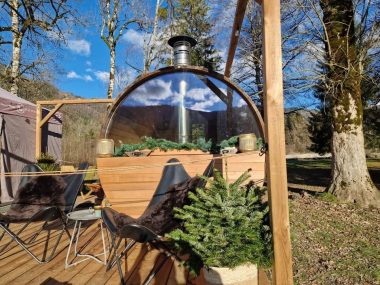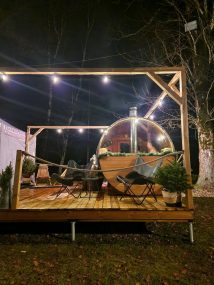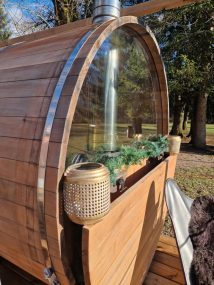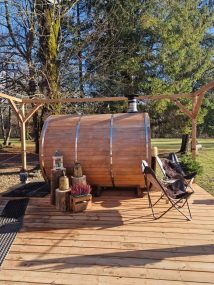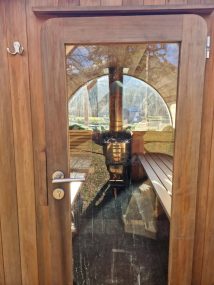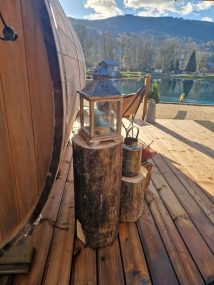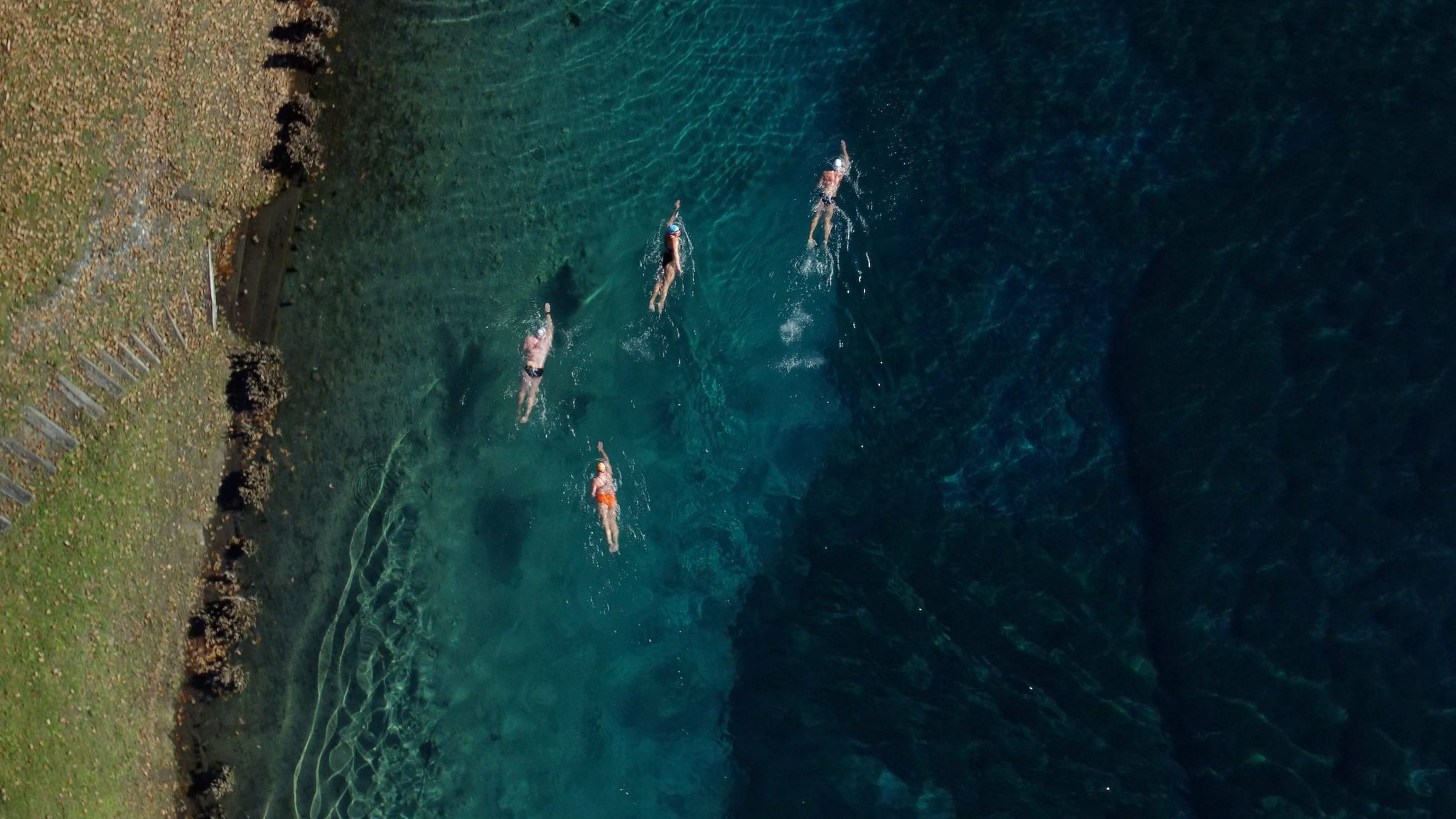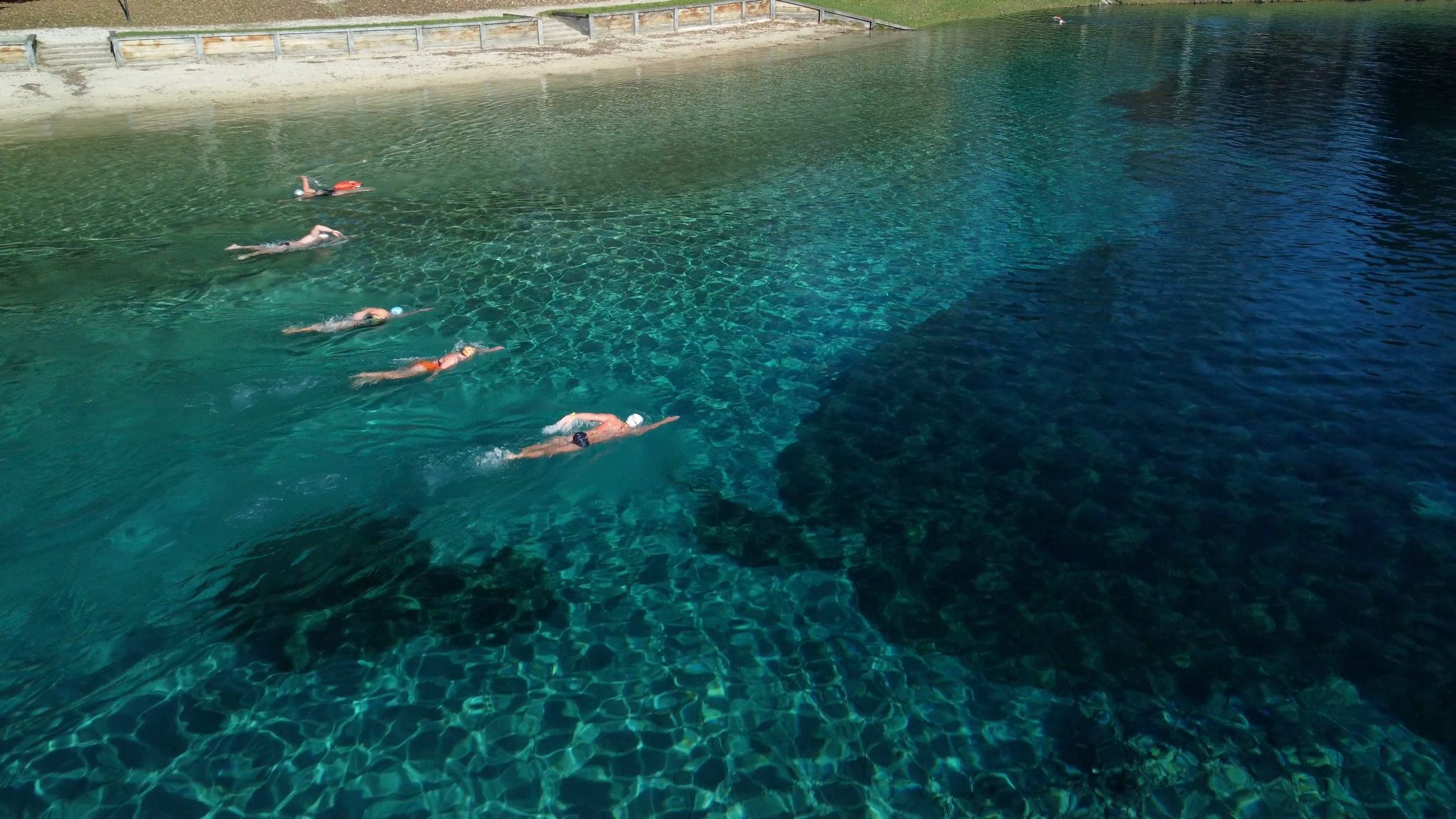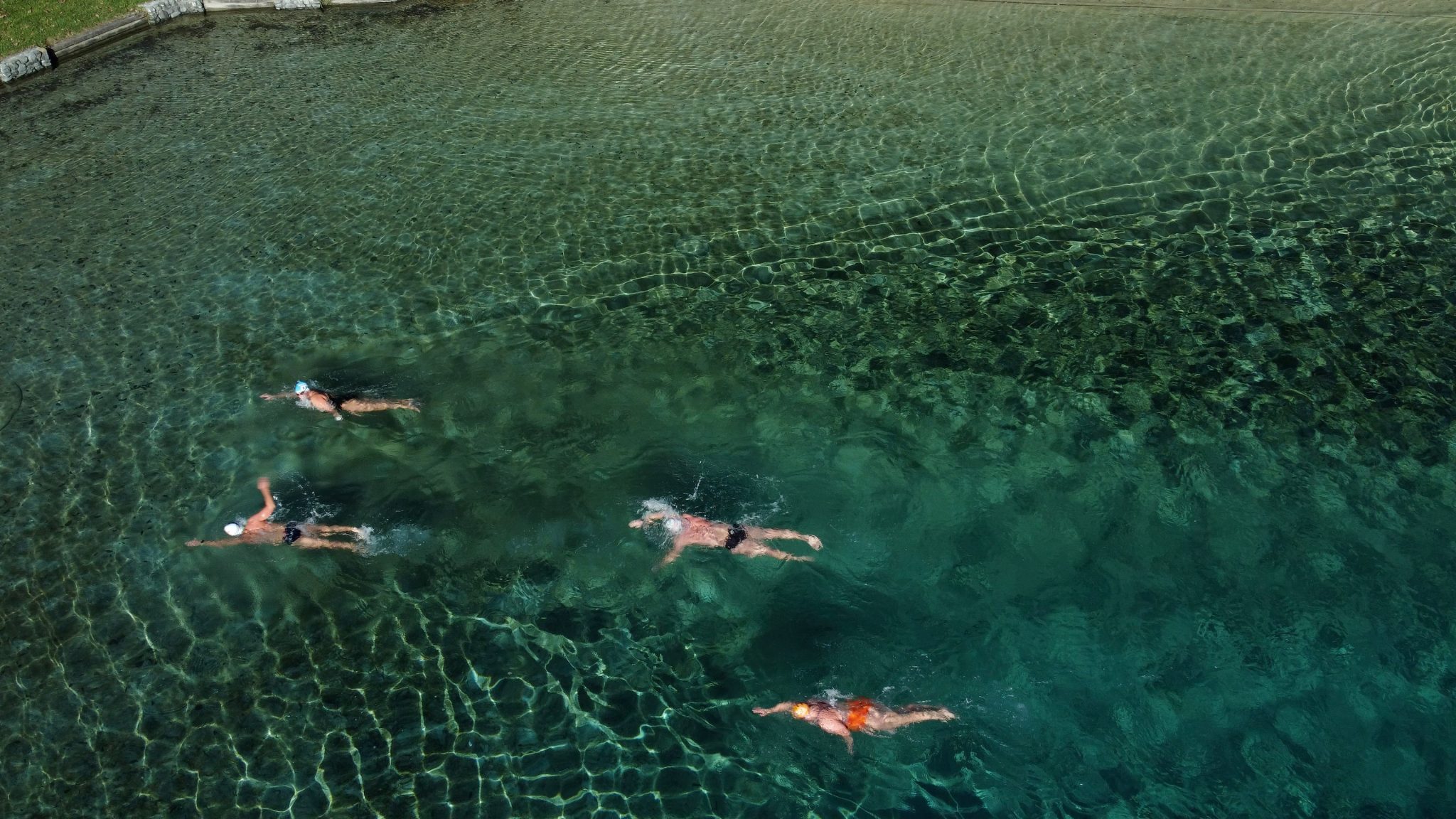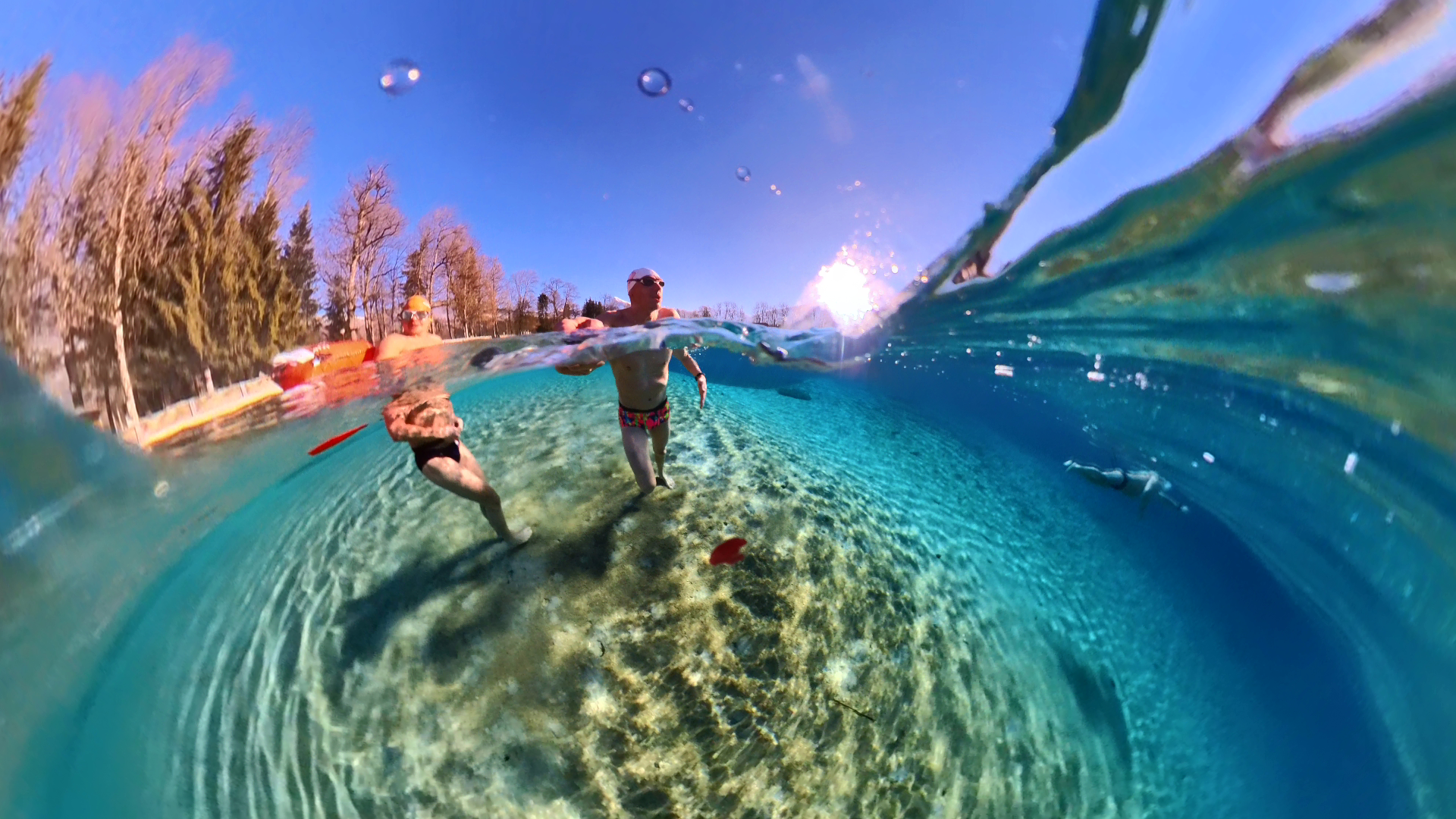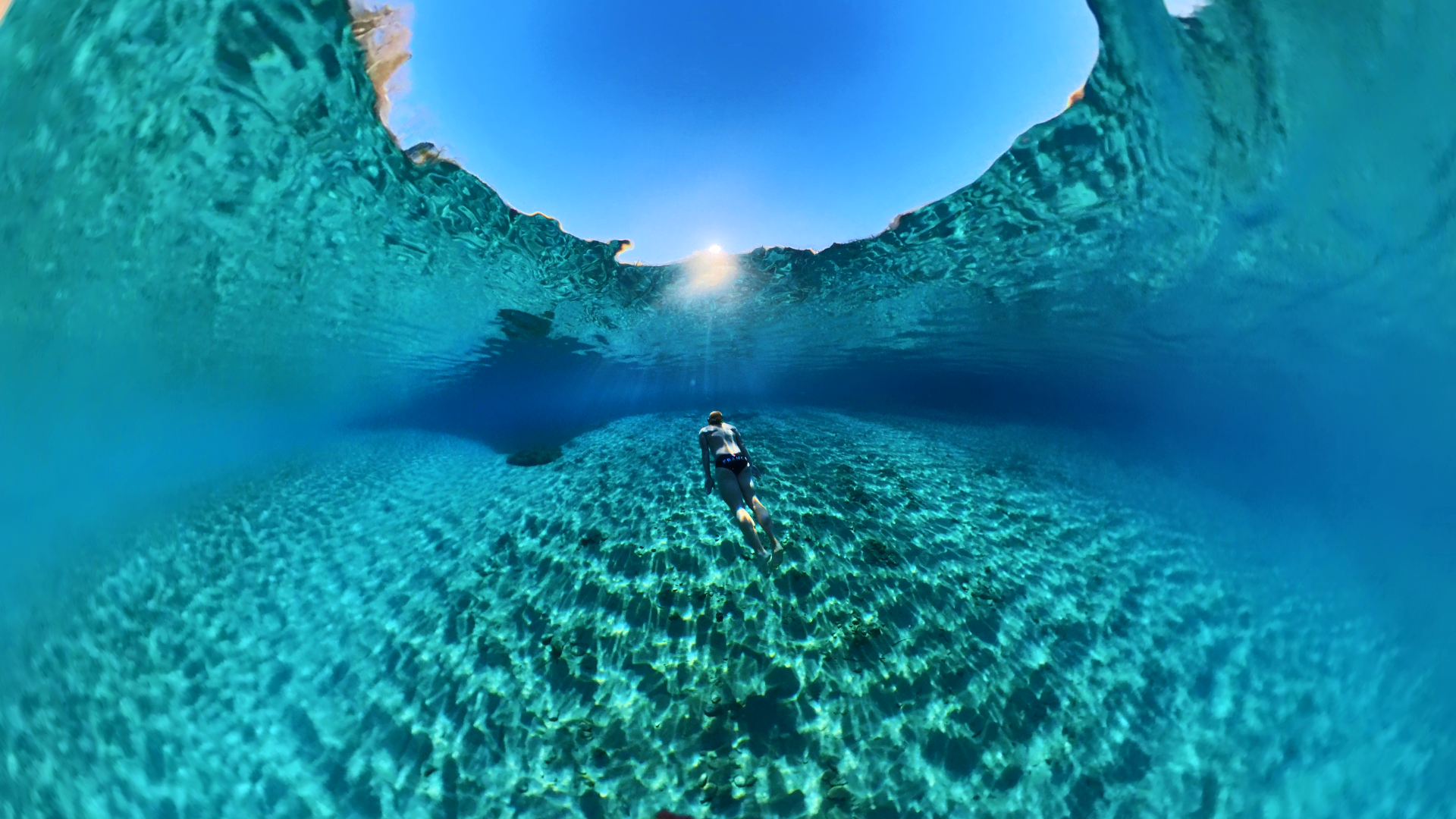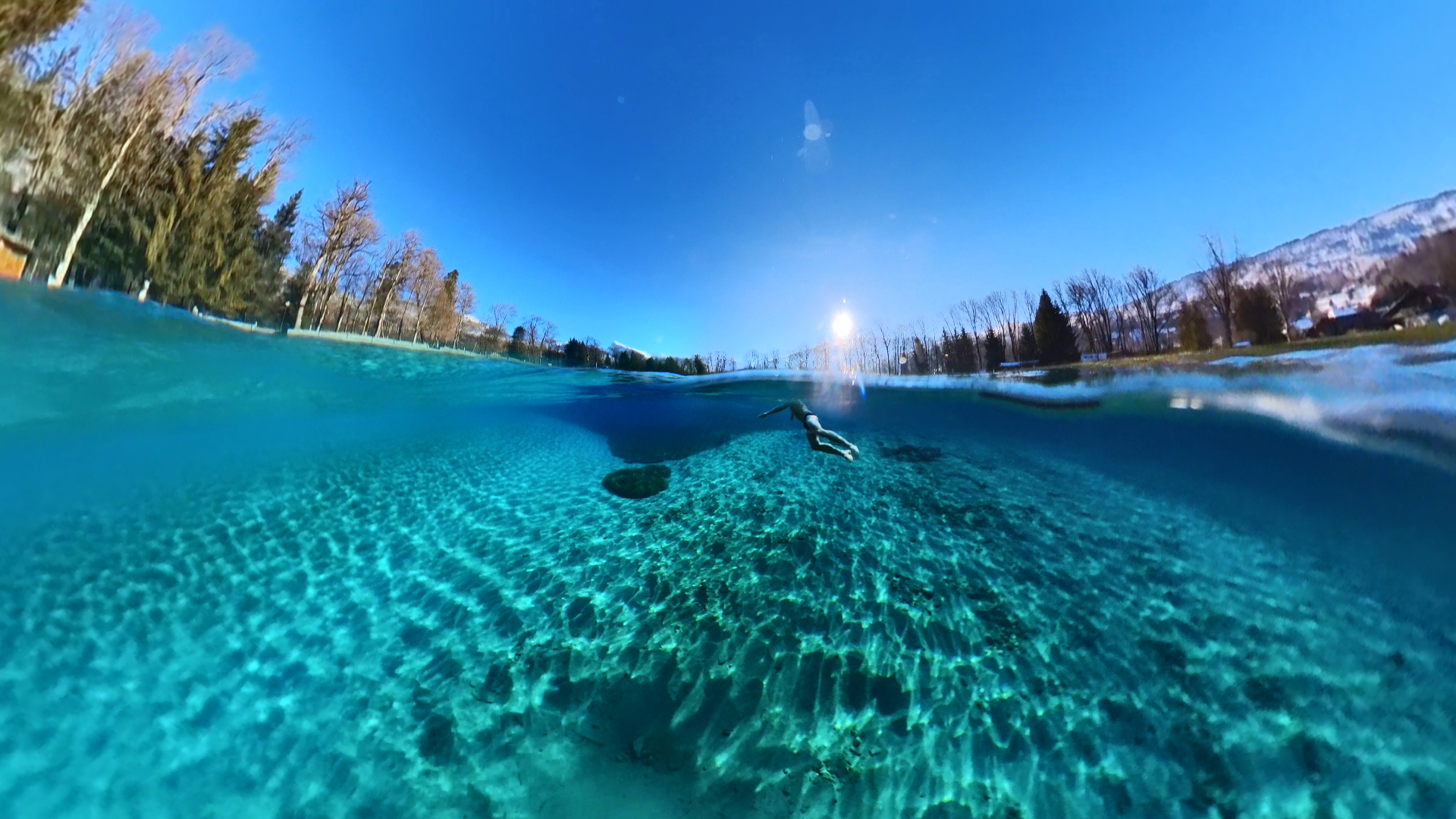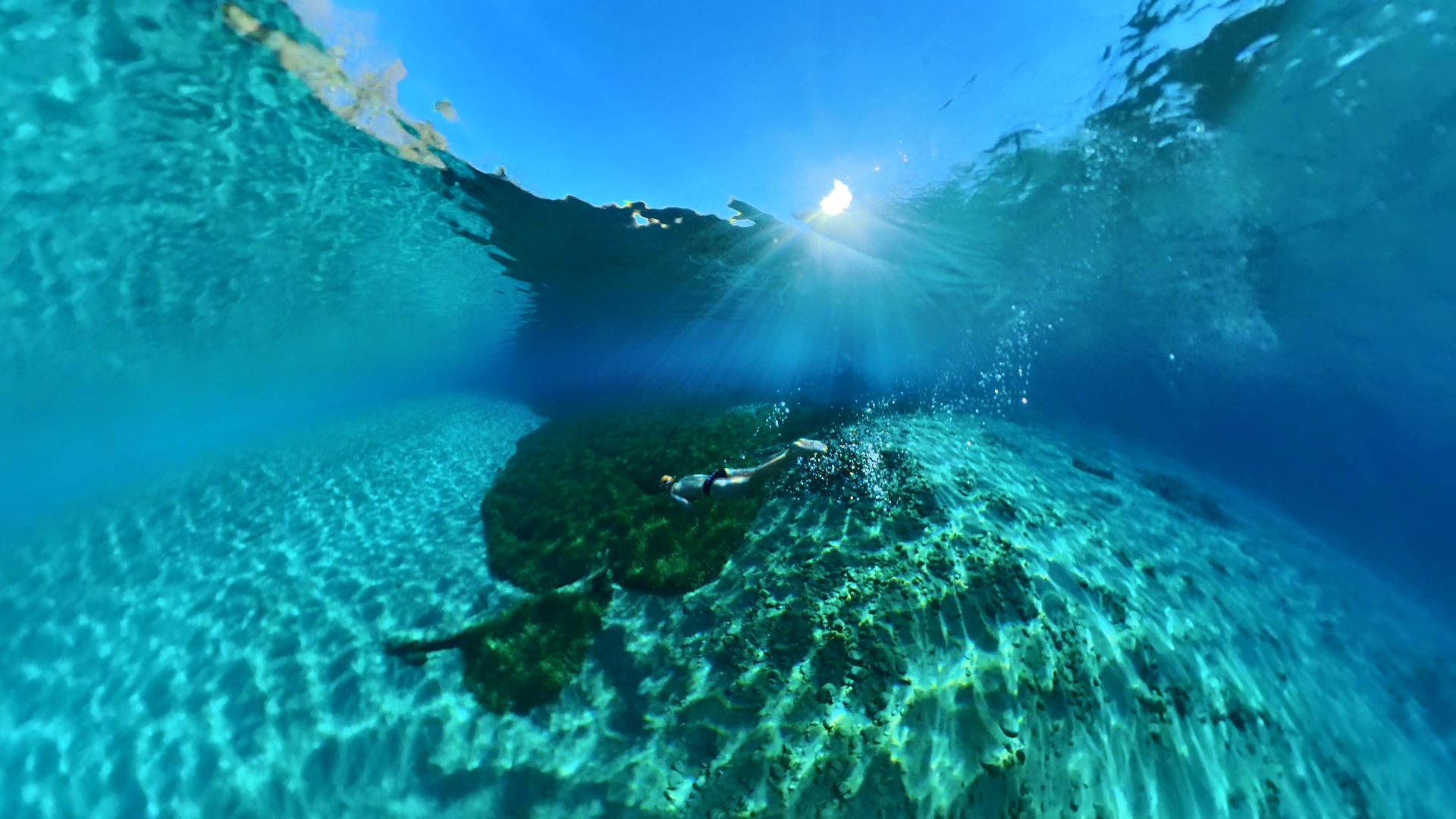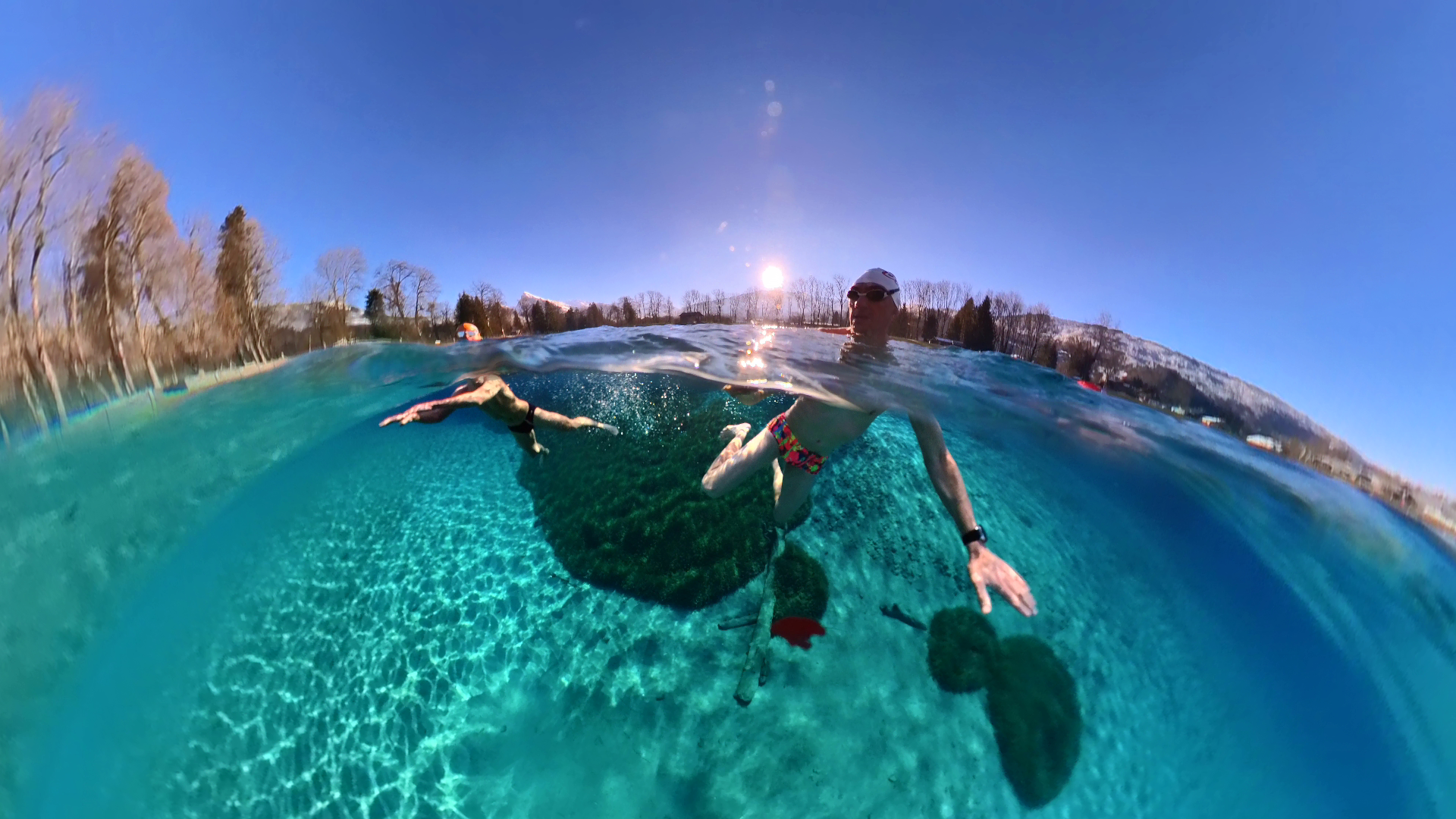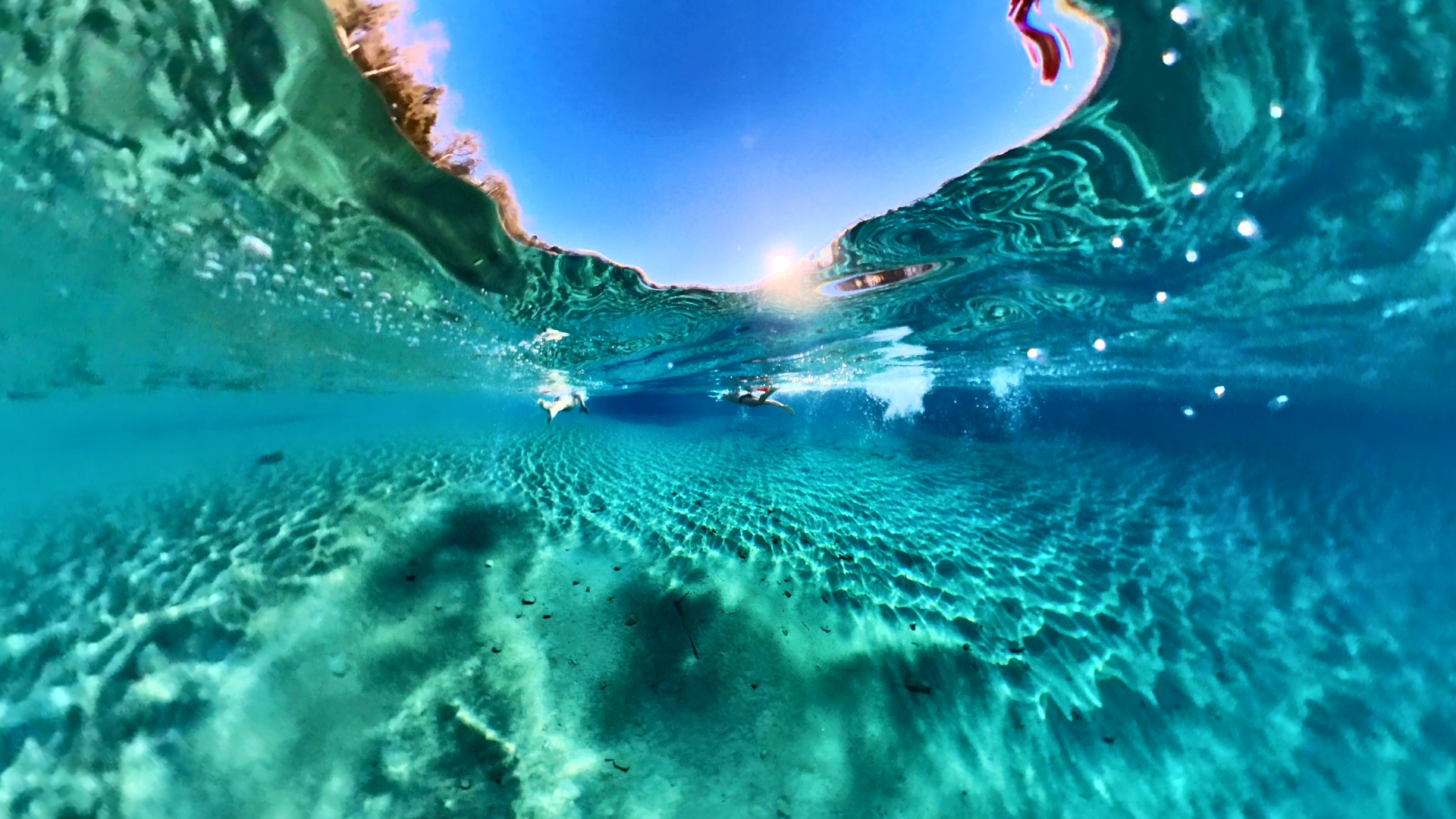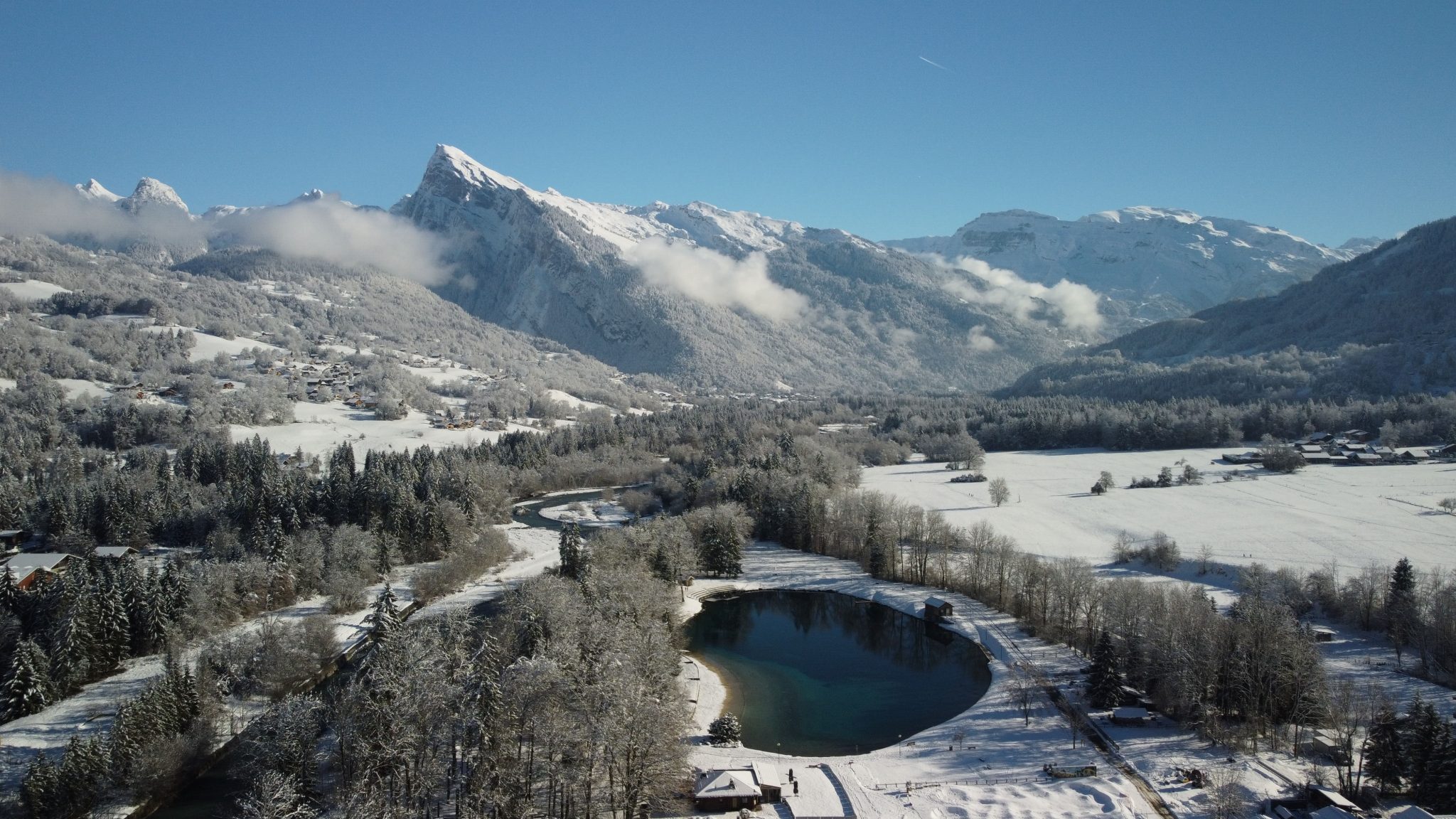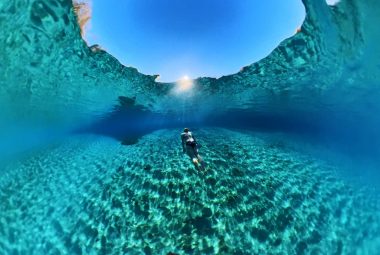In Nordic countries, a seductive practice emerges from the union between comforting warmth and icy cold: cold baths combined with saunas. This unique combination offers the body a unique experience, encouraging perspiration to eliminate toxins. Warmth, which increases blood flow and induces deep relaxation, is skilfully combined with cold, slowing blood circulation and reducing muscle contractions.
Swimming in cold water combined with a sauna: the union of comforting heat and icy cold
It’s against this backdrop that the intriguing Asa, a Swede who has lived in the Giffre mountains for many years, is offering a unique Scandinavian experience with her mobile sauna.
Accompanied by Arnaud, lifeguard at the Cluses water sports centre and a keen cold-water swimmer, Asa offers everyone the chance to explore the harmony of hot and cold on the shores of Lac Bleu in Morillon. The story of this adventure begins with a phase of apprehension about the icy environment. Armed with reassuring words, Arnaud skilfully guides those who dare to dive into the turquoise waters of the lake, watched over by the majestic snow-capped mountains. Thanks to mental preparation techniques based on breathing, immersion in the frigid waters becomes an almost effortless experience.
After a few minutes in the lake, at a rate of one minute per degree, the body and mind find warmth and relaxation in the sauna for around fifteen minutes. The session continues with another plunge into the icy waters of the lake. At the end of this daring experience, it becomes clear that well-being can sometimes emerge from an inner struggle. This confrontation with oneself not only brings self-confidence, but also relaxation and happiness, leaving a memorable mark on the shores of Morillon’s Lac Bleu.
The mobile sauna and cold water swim are available on Fridays from 1pm to 2.30pm and on Wednesday mornings for groups of 5 people minimum. The session lasts one hour for a fee of €45.
More info www.bastu74.com
FAQ
How to swim well in cold water
The ideal way is to start after the summer, simply by continuing to swim, Gradually, the body will get used to increasingly cool water. It’s also a good idea to speak to your GP to rule out any contraindications. The risks are rare, but they do exist (circulatory problems, fainting, hypothermia, etc.). It is therefore strongly advised not to practice with more than one person. For a successful first experience, start with breathing and/or meditation exercises, followed by short immersions and a warm-up beforehand. Alternating cold-water swimming with a sauna session can help your body manage temperature variations better and encourage muscle relaxation.
Is it good to swim in cold water?
Yes, if done gradually and safely. Swimming in cold water stimulates blood circulation, boosts the immune system and gives you a feeling of vitality. Many people enjoy the ‘kick’ effect associated with this type of swimming, especially when it’s followed by a relaxing moment such as a sauna.
Is it good to bathe in cold water?
Bathing in cold water has similar benefits to swimming in cold water: we often see a boost in energy, an anti-stress effect and a general improvement in fitness. To get the most out of it, adjust the duration of the immersion to your level of habituation to the cold and opt for a gradual exit, followed by a warm-up phase.
What temperature is too cold to swim in?
As a general rule, water below 10°C is considered very cold. At these temperatures, the risk of thermal shock and hypothermia increases. It is therefore essential to limit the time spent in the water (1 minute per degree of water temperature), to be well-equipped and to ensure that you have somewhere to warm up quickly, such as a sauna or a heated area.
How to get your body used to cold water
Acclimatisation takes place in stages. You can start with cool showers, then gradually increase the duration and lower the temperature. Going back and forth between colder water and a sauna also helps train your body to cope better with temperature changes. Mental preparation, breathing exercises and meditation are also useful… Finally, listen to your senses: stop immediately if you feel intense shivering or unusual pain.

